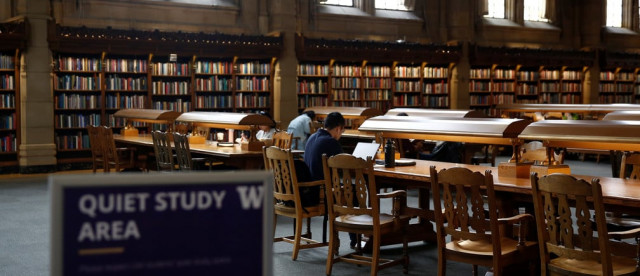Rethinking social science
The dominance of materialism has made us humans subservient to vanity, lust, and self-gratification

The dominance of materialism has made us humans subservient to vanity, lust, and self-gratification. We are in the process of getting alienated to such qualities as altruism, honesty, and modesty. The triumph of matter over soul has created chaos, oppression, and hopelessness. This is the result of humanity’s persistent failure to strike a balance between sense and soul of science and religion.
The history of modern science is rooted in the idea of finding the ‘truth’ through objective means. Nothing can be believed until there is scientific proof of its existence, or until it can be logically accepted by the rational mind. The ‘pure’ scientific method that modern scientists use is simple: it involves empirical observation, deduction, induction, experimentation, and conclusions reached in a way that is completely detached from human and cultural elements. Morals and value judgments have no role to play in drawing conclusions.
The contemporary understanding of science, however, demonstrates that science is a human activity, encompassing and subject to the whole spectrum and complexity of human behaviour. Emotions, beliefs, values, and interests join the scientific ‘enterprise’ right from the selection of problems to the funding of research projects and the interpretation of results. Modern scientists and philosophers including Kuhn, Marx, and Hilary Rose contend that scientific decision-making is basically a political affair, in which prestige, power, and ideologies play a cardinal role.
The issue of the relevance of Islam to modern ‘scientific’ thinking is flanked on both sides by extreme positions. On the one hand, there are Muslim social scientists that believe that integration of revelation and science is an abortive and impossible effort, for the former talks of reality in ‘absolute terms whereas the latter regards knowledge of reality ‘relative’ and tentative. Thus, they suggest that Islam, or any other religion for that matter, has nothing to do with theory building. This attitude is, however, the product of indoctrination of positivist-empiricist science, which separates religion from science. In this regard, the US National Academy of Sciences states, “Religion and science are separate and mutually exclusive realms of human thought, presentation of which in the same context leads to a misunderstanding of both scientific theory and religious belief.”
On the other hand, some Muslim scientists think that schism between modern science and religious beliefs is unnecessary, artificial, ideologically inspired, and the result of historical and geographical events. The contradiction between religion and science comes either from misinterpretation/distortion of divine scriptures or the positivist-empiricist limitations and paradigmatic hegemony.
Since 19th-century science was materialistic, mechanistic, and reductionist (Newtonian formulation), humanity was attributed to similar characteristics. All this was done without serious reflection on how the subject matter of social sciences differed, in very significant ways, from that of the physical sciences. This type of confusing and different phenomena is called a ‘category error’ which occurs when very different categories of the phenomenon are treated alike. The ‘human realm’ is different in considerable ways from the physical phenomenon.
The general agreement on positivist-empiricist tradition as the foundation of knowledge was the bitter harvest of the unfortunate church-science conflict during the Renaissance in Europe. The scientists who were studying the physical phenomena had considerable success in attaining certain knowledge about it. Hoping to achieve a comparable degree of success in the study of humanity, scientists (or rather philosophers) demanded that the methods used in natural sciences be applied to the social sciences.
A human being, according to Islam, is not entirely a material being. Rather, he/she combines material, observable, empirical aspects (body) with spiritual, non-empirical aspects (soul), in an integrated, indivisible unity. Human behaviour is the result of a dynamic interplay between these forces. Social scientists can achieve true insights into the ‘unseen’ human makeup and its impact on individual and collective behaviour by going back to revelation for guidance.
Published in The Express Tribune, September 21st, 2020.
Like Opinion & Editorial on Facebook, follow @ETOpEd on Twitter to receive all updates on all our daily pieces.













COMMENTS
Comments are moderated and generally will be posted if they are on-topic and not abusive.
For more information, please see our Comments FAQ